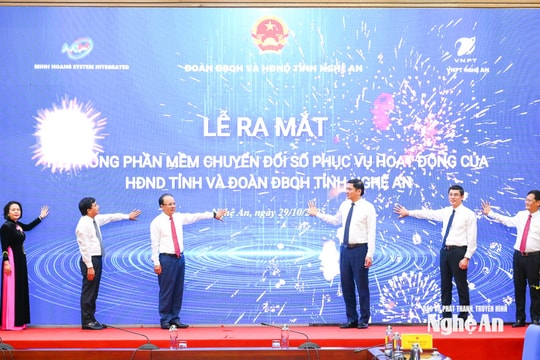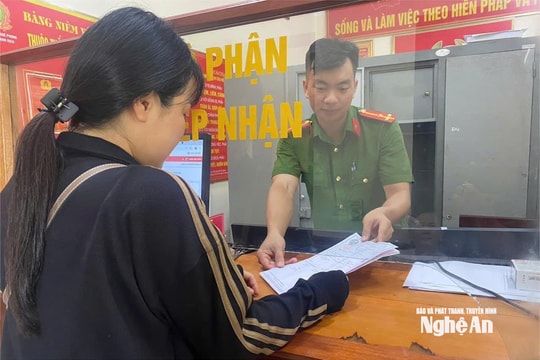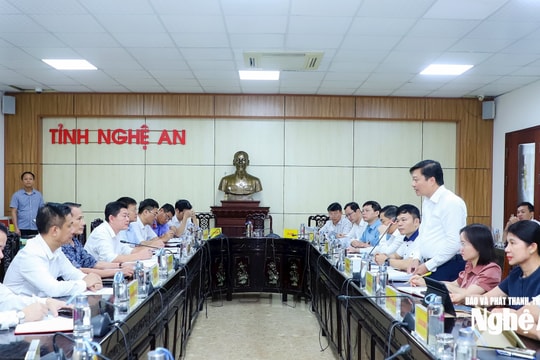Proposing that people coming to complain and denounce must provide identification information
People who come to make complaints, denunciations, or petitions at the citizen reception place are obliged to "clearly state their full name, address, identity card number, identity card certificate or identification number, or passport number...".
This morning (November 11), the National Assembly listened to Government Inspector General Doan Hong Phong present the draft Law amending and supplementing a number of articles of the Law on Citizen Reception, the Law on Complaints, and the Law on Denunciation.
The Government Inspector General said that the draft law removes regulations related to the district level in receiving citizens, handling complaints and denunciations; adjusts the authority and responsibility in receiving citizens, handling complaints and denunciations according to the new organizational model of local authorities, the People's Court, the People's Procuracy, and the inspection agency system.
The draft supplements regulations on online citizen reception; promotes the application of information technology, digital transformation, and the construction of a national database on citizen reception, petition processing, and complaint and denunciation settlement. Accordingly, citizens can choose to receive citizens in person or online.

The draft states that online citizen reception must comply with legal regulations; ensure network information security and safety and physical and technical conditions; ensure confidentiality and safety for whistleblowers according to legal regulations. Minutes of work, data, documents, and records arising during online citizen reception must be secured, have legal value, and be the basis for resolving the case.
The Chairman of the People's Committee at the commune level shall directly receive citizens at the place of citizen reception at least 2 days a month. According to the drafting agency, this regulation ensures consistency with the regulations on citizen reception by the head of the Party Committee in Regulation No. 11 of the Politburo and is consistent with the current model of commune-level government organization.
Examining the above content, the Committee for People's Aspirations and Supervision said that the majority of opinions in the Committee agreed with the regulation on receiving citizens online to promote digital transformation. However, there were opinions suggesting that the Government further evaluate the effectiveness of the implementation of the online citizen reception model in the past time.
Draft law amends and perfects the authority of the Chairman of the People's Committee at the commune level to resolve denunciations of violations of the law in the performance of duties and public service by the head and deputy head of a specialized agency under the People's Committee at the commune level, and by cadres, civil servants, and public employees under their direct management.
The commune-level Chairman also resolves denunciations of violations of the law in the performance of duties and public services by agencies and organizations directly managed by the Commune-level People's Committee.
The Chairman of the Provincial People's Committee resolves denunciations of violations of the law in the performance of duties and public service by the Chairman and Vice Chairman of the Commune People's Committee, the head and deputy head of specialized agencies and other administrative organizations under the Provincial People's Committee, and civil servants appointed and directly managed by him/her.
The draft law stipulates that people who come to make complaints, denunciations, and petitions must provide identification information to avoid impersonation. Specifically, when coming to the citizen reception place, people who make complaints, denunciations, petitions, and reflections are obliged to “clearly state their full name, address, identity card number, identity card certificate or identification number or passport number; in case they are legally authorized by the complainant, they must have a power of attorney.”
Examining this content, the Committee for People's Aspirations and Supervision said that the majority of opinions in the examining agency agreed, but there were opinions requesting further clarification of cases where the complainants, denouncers, petitioners, and reflectors are people of Vietnamese origin whose nationality has not been determined and are living in Vietnam and are not considered Vietnamese citizens, are they within the scope of the Law on Citizen Reception?
This opinion suggests studying specific provisions in the law to avoid affecting the rights and interests of these subjects.





